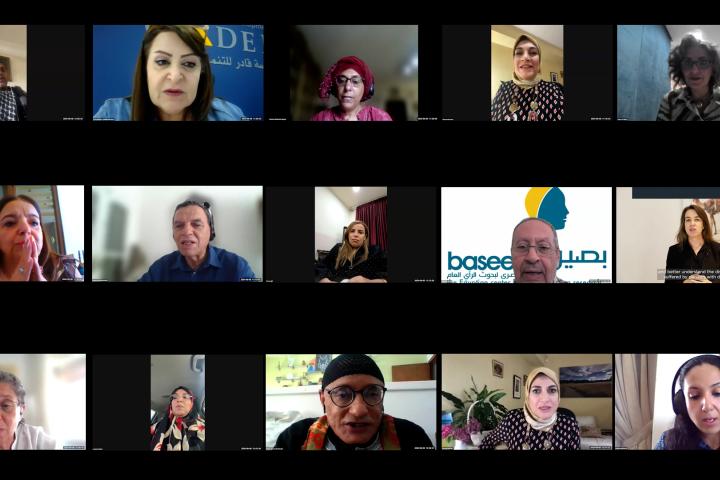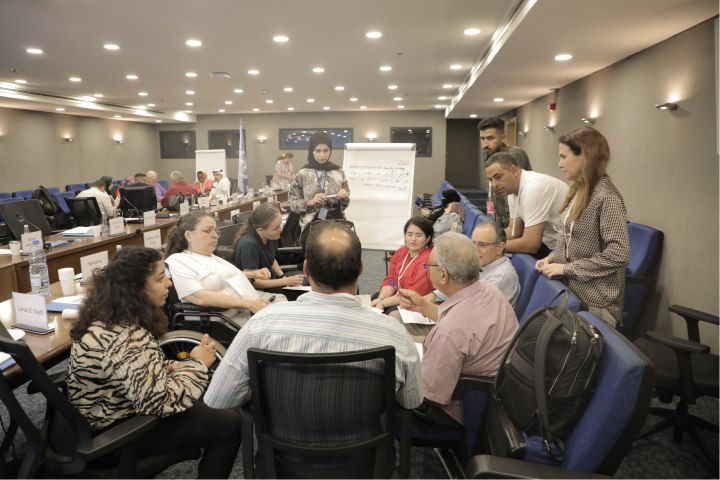Beirut, 6 April 2020--While COVID-19 is affecting people indiscriminately, women and girls are among the most vulnerable to the impact of the pandemic. A new policy brief by the United Nations Economic and Social Commission for Western Asia (ESCWA) and other United Nations entities (attached) emphasizes that existing domestic violence and social challenges faced by women and girls in the Arab region have worsened.
“Domestic violence has increased in the world and the Arab region with lockdowns, enforced coexistence due to quarantines, economic stress, perceived and real food insecurity, and fears about exposure to the virus,” ESCWA Executive Secretary Rola Dashti underscored. “Women survivors of violence will face increased difficulties in accessing help during the pandemic,” she added.
Increasing food insecurity will not only place women and girls at heightened risk of domestic violence with rising household tensions, it will also reduce their immunity to the virus. In addition, in times of crises, food and nutrition distribution within households is not always equitable. Women and girls are also more likely to reduce the quality and quantity of food consumption, and adopt negative coping strategies.
Another feature of the region is that the large majority of nurses, midwives and support staff at medical facilities are women, who thus face disproportionate exposure risks. Within households, women often assume the role of informal health-care providers and caretakers, which results in them being emotionally and physically exhausted, further increasing those risks.
“We call on Arab Governments to ensure that women have equal access to social protection and adopt policies aimed at protecting them from falling into poverty, especially those working in the informal sector, with measures such as emergency cash transfers and small-scale grants,” Dashti said.
As highlighted in a previous ESCWA brief, 1.7 million jobs will be lost in 2020 in the Arab region due to the corona virus pandemic, and ESCWA and partners estimate that nearly 700,000 of those will be lost by women. With women registering only about 20% of labour force participation in the Arab region, their job losses would amount to double the percentage of men’s job losses, which points to largely uneven exposure. Another ESCWA study tackling the pandemic’s impact on poverty had shown that workers in the informal sector would be the most affected. About 62% of active women work in the informal sector in the Arab region; the majority of working women will thus be affected by the expected poverty rise.
Meanwhile, refugee and internally displaced women and girls, as well as women migrant workers, will continue to struggle with poor access to water, sanitation and hygiene facilities, and limited access to health care, which will have critical repercussions during the pandemic.
The Secretary-General of the United Nations had also pointed to increased violence against women and girls due to the COVID-19 pandemic, renewing his appeal to end violence everywhere, immediately.
About ESCWA
One of five United Nations regional commissions, ESCWA supports inclusive and sustainable economic and social development in Arab States, and works on enhancing regional integration.
For more information
Ms. Maryam Sleiman, Public Information Assistant, +961-81-769-888; sleiman2@un.org
Ms. Rania Harb, Public Information Assistant, +961-70-008-879; harb1@un.org




